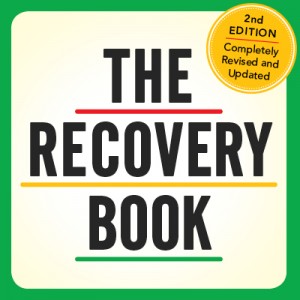“I just went back to school after six weeks of addiction treatment and summer vacation. What do I do when my friends ask if I want to get high?”
When you go back to school you will likely run into temptations to drink to use drugs. You need to make a plan to deal with this kind of situation long before it comes up, or you might have trouble refusing these offers.
Peer pressure can be tough to fight, but you can resist. All you need are the right tools. You probably got some of them in treatment, and you’ll pick up others as you go to more AA or NA meetings.
Talk about this issue with your counselor, your sponsor, and other students at your school who are in a recovery fellowship. Ask them exactly what they do to avoid problems. The following tips may also help:
- Think ahead to situations you may come up against and plan exactly what you’ll do in each one. Act some out with your sponsor or counselor; that will make it easier to handle them when they occur in real life. If someone approaches you, try not to look scared or nervous. Stand tall, look directly at them, and speak firmly, confidently, leaving no doubt that you mean what you say.
- Don’t get into a debate with someone who is trying to convince you to get drink or get high. Just ignore the bait; don’t engage in the conversation. Change the subject, go talk with someone else.
- It takes two to make a drug deal: a seller and a buyer. Walk away and don’t let that sale happen. Don’t risk your recovery. Say no and leave the scene as soon as you can.
- Block phone calls, texts and emails from people you don’t want to be around. Delete their contact info.
- Don’t tempt yourself by looking at old party photos on Facebook. Delete them now. Untag yourself. (See How to Clean up Your Online Reputation.)
- Stay away from old playmates and old playgrounds as much as possible. Let everyone at school know you’ve been to treatment and are in recovery; hang out with other kids in recovery or straight kids. The people you used to hang with will keep their distance, and you’ll attract new friends who are happy to live chemical free.
- Don’t be afraid to ask for advice. If you are upset, confused, or unsure of what to do, find someone who can help you. Asking for help is a sign of strength, not weakness. Talk with your sponsor, drug counselor, an AA friend, your guidance counselor, your clergy person, or a teacher. If you feel comfortable doing so, talk to your parents, another relative, or a sober friend’s mom or dad. They were all young once, and peer pressure was every bit as heavy then as it is now.
- Download some recovery apps for your phone. They can help you to chart your days sober, recognize your triggers, and more.
- If you’re ever tempted to get involved with drugs or alcohol again (and you will be), think about the consequences. Weigh the long-term risks against the short-term benefits. Remember what life was like when you were using—a little bit of heaven, a whole lot of hell. Think about who else you’ll hurt (besides yourself) if you relapse. Think about messing up your schoolwork and your future. Think about the fact that, as a young person, you are very likely to end up with a serious addiction as an adult if you continue to use now. If you think you’ll need something to remind you, write up your recovery story and carry it with you.
- Whatever you do, don’t let other people make the decisions that can so powerfully affect your life and your health. It’s your life, and you’re in charge of it.


Pingback: Back to School & Sober: 12 Tips for Success |